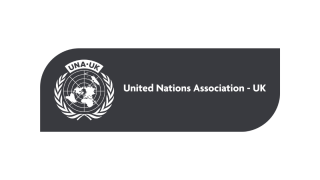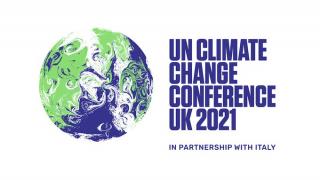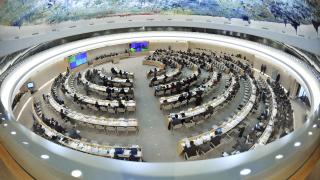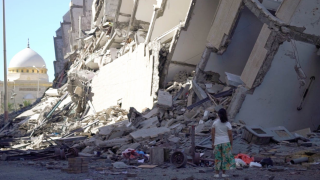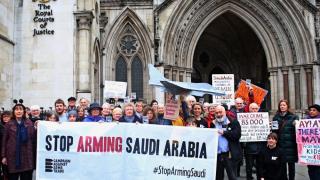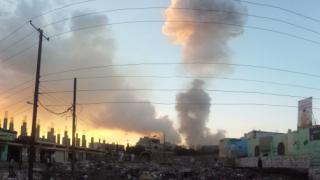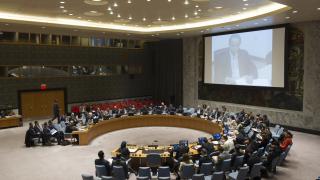
In a joint letter to the UK's Permanent Representative to the United Nations, Karen Pierce, UNA-UK together with national and international non-governmental organisations noted the UK's role as Security Council lead on Yemen, and stated: "The world is looking to Britain to stand up for those suffering in Yemen and to make urgent progress towards a peaceful resolution".
The full text of the letter has been reproduced below.
Karen Pierce CMG
Permanent Representative to the United Nations
UK Mission to the UN
26 March 2018
Dear Ambassador,
Many congratulations on your appointment as UK Permanent Representative to the UN in New York. We are grateful for the work you have previously done at both the missions in New York and Geneva. As non-government organisations committed to peace, security and humanitarian solutions to the many crises facing the international community, we look forward to working with you to address the raft of challenges the UN is grappling with.
Among the troubling situations occupying the agenda of the Security Council, Yemen warrants immediate priority – a country dubbed by the UN as the “world's worst humanitarian crisis”. Your tenure begins as the conflict enters its fourth year and is at a tipping point. As the Security Council penholder on Yemen, the UK must work in partnership with the new UN Special Envoy, Martin Griffiths, to push for a cessation of hostilities and a negotiated peace settlement.
The suffering in Yemen as a result of three years of conflict is eye watering. As you will be aware, an estimated 22.2 million Yemenis are now in need of humanitarian assistance, 3.5 million more than last year. Every 10 minutes a child dies from preventable causes and UNFPA estimates 1.1 million pregnant and breast-feeding women are malnourished due to severely eroded services, a collapsing economy and a lack of humanitarian access to conflict-affected areas.
To date, efforts for peace, including those under the auspices of the Security Council, have failed to make meaningful progress. We welcome the recent Presidential Statement (S/PRST/2018/5) and believe that, if robustly implemented, it could offer hope to those in need. In particular, we welcome calls for the “full and sustained opening of all Yemen’s ports” in order for essential imports “to reach the entire civilian population” and for “all parties to the conflict to abandon pre-conditions and engage in good faith” with UN-led peace negotiations.
But the PRST does not adequately reflect the urgency of the ongoing violence and worsening humanitarian situation and will not be enough to address this catastrophe. Peace will only come to Yemen through negotiations without preconditions, supported by outside partners who place saving lives over singling out adversaries for criticism.
We are disappointed that in three years of conflict there has been just one substantive Security Council resolution addressing the conflict. While we stand ready to work alongside the UK and our partners in Yemen to ensure the objectives in the Presidential Statement are met – effective monitoring will be crucial, as will support for the new Special Envoy for Yemen – we are wary that Presidential Statements are not binding and can be ignored. Ultimately, we believe a new Security Council resolution is required to strengthen the Envoy’s mandate and demand an end to hostilities.
We believe work should begin on this immediately with the goal of getting all parties to the conflict to the negotiating table. The Council’s outputs must be balanced and reflect realities on the ground, as well as the urgency of the humanitarian crisis. Condemning actions on only one side of the conflict risks undermining the role and the voice of the Security Council and will make progress toward talks more difficult.
A new resolution should: include commitments to address barriers to humanitarian access into and within Yemen (including permanently lifting the Saudi-led coalition’s blockade); reflect the violations of international humanitarian law committed which, according to the UN Panel of Experts, have been committed by all conflict actors; and abandon the pre-conditions for negotiations laid out in UNSCR 2216.
The world is looking to Britain to stand up for those suffering in Yemen and to make urgent progress towards a peaceful resolution. In doing so, the UK can give meaning to its vision of a ‘Global Britain’ that will act in the collective interest and fulfil its responsibilities on the UN Security Council.
Finally, we wish you every success in discharging your responsibilities at a time when the rules-based international system is under great strain, and the world needs principled international cooperation more than ever.
Yours sincerely,
CARE International UK
Gender Action for Peace and Security
International Rescue Committee
Mercy Corps
Norwegian Refugee Council
Protection Approaches
United Nations Association – UK
War Child UK
Ambassador Pierce’s response
We welcome Ambassador Pierce’s reply but are concerned that the UK’s approach to wait and see if the UN’s newly appointed Special Envoy Martin Griffiths gets on while “encouraging” states to parties to the conflict to negotiate does not fully recognise the urgency of the situation.
UNA-UK and its partners believe the UK should table a balanced Security Council resolution which should: include commitments to address barriers to humanitarian access into and within Yemen (including permanently lifting the Saudi-led coalition’s blockade); reflect the violations of international humanitarian law committed which, according to the UN Panel of Experts, have been committed by all conflict actors; and abandon the pre-conditions for negotiations laid out in UNSCR 2216. View Karen Pierce’s response here.
UNA-UK also sent a letter to Alistair Burt MP and Minister of State for the Middle East. We will publish his response if and when we receive one.
Campaign push
This initiative coincides with community-based actions by UNA-UK's supporters around the country, urging MPs to tell the UK Government to prioritise peace in Yemen, both through international efforts and by using its close relationship with Saudi Arabia - the country leading the principal military intervention in Yemen. Campaign with us here.
On 24 March, UNA-UK's Executive Director, Natalie Samarasinghe, spoke on the issue on BBC Radio Scotland (listen from 1:38:00).
UNA-UK has also released several recent blogs and articles on this issue:
- British weapons in Yemen: the human cost and the UK’s national interest - Control Arms blog by Ben Donaldson, Head of Campaigns, UNA-UK
- UN Powerhouse? - Huffington Post blog by Natalie Samarasinghe, Executive Director, UNA-UK
- Global Britain? - Medium blog by Ben Donaldson, Head of Campaigns, UNA-UK
Image: United Nations Security Council discusses Yemen. Credit: UN Photo

